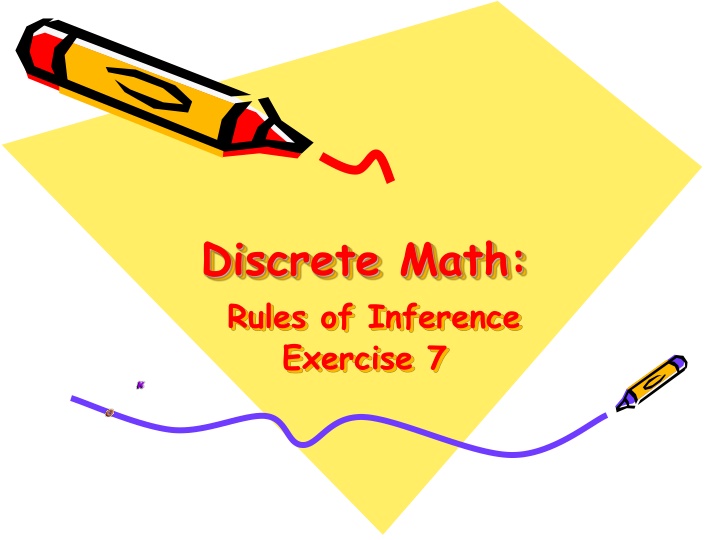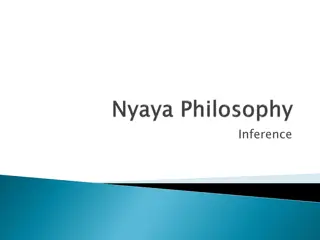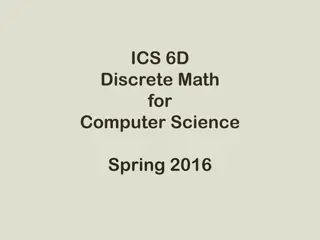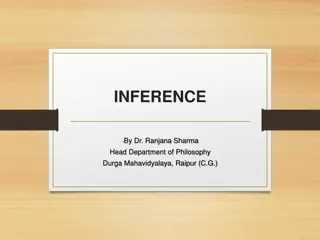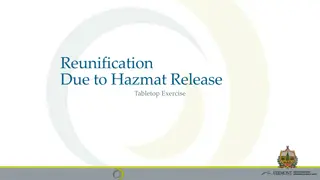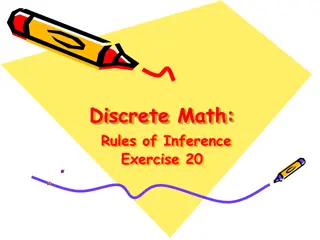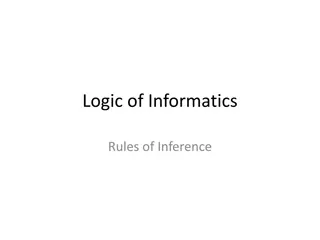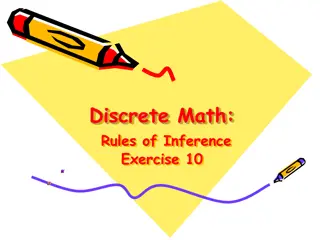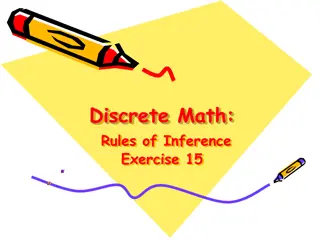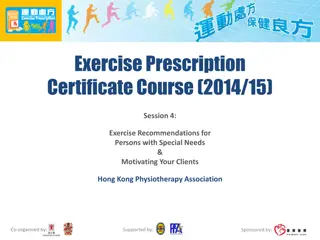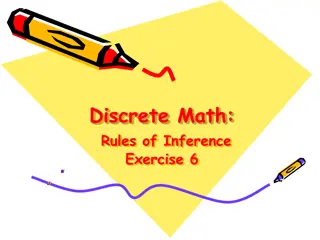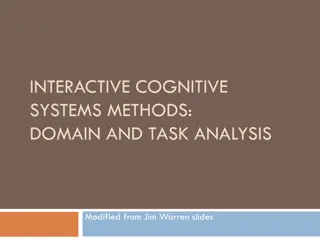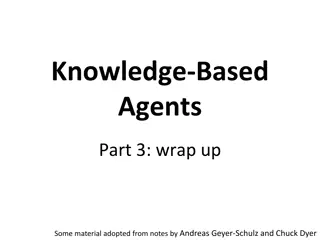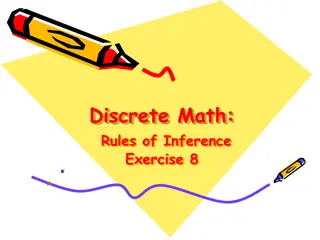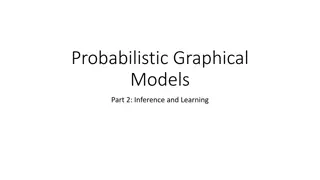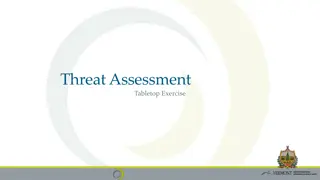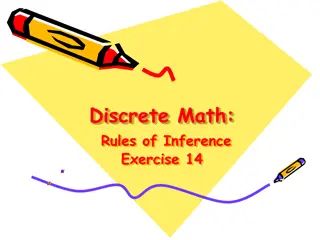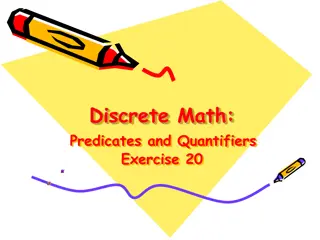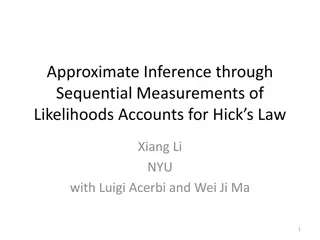Rules of Inference Exercise Solutions in Discrete Math
This content provides solutions to exercises involving rules of inference in discrete mathematics. The solutions explain how conclusions are drawn from given premises using specific inference rules. Examples include identifying whether someone is clever or lucky based on given statements and determining presence of personal computers based on major in computer science.
Download Presentation

Please find below an Image/Link to download the presentation.
The content on the website is provided AS IS for your information and personal use only. It may not be sold, licensed, or shared on other websites without obtaining consent from the author.If you encounter any issues during the download, it is possible that the publisher has removed the file from their server.
You are allowed to download the files provided on this website for personal or commercial use, subject to the condition that they are used lawfully. All files are the property of their respective owners.
The content on the website is provided AS IS for your information and personal use only. It may not be sold, licensed, or shared on other websites without obtaining consent from the author.
E N D
Presentation Transcript
Discrete Math: Rules of Inference Exercise 7
Exercise For each of these collections of premises, what relevant conclusion or conclusions can be drawn? Explain the rules of inference used to obtain each conclusion from the premises. c) I am either clever or lucky. I am not lucky. If I am lucky, then I will win the lottery. d) Every computer science major has a personal computer. Ralph does not have a personal computer. Ann has a personal computer.
Solution c) By disjunctive syllogism from the first two hypotheses we conclude that I am clever. The third hypothesis gives us no useful information. d) We can apply universal instantiation to the conditional statement and conclude that if Ralph (respectively, Ann) is a CS major, then he (she) has a PC. Now modus tollens tells us that Ralph is not a CS major. There are no conclusions to be drawn about Ann.
References Discrete Mathematics and Its Applications, McGraw-Hill; 7th edition (June 26, 2006). Kenneth Rosen Discrete Mathematics An Open Introduction, 2nd edition. Oscar Le in A Short Course in Discrete Mathematics, 01 Dec 2004, Edward Bender & S. Gill Williamson
